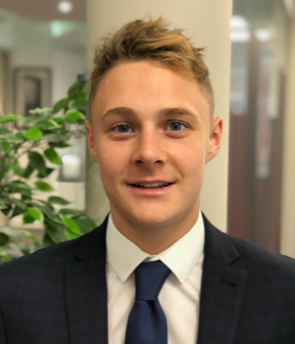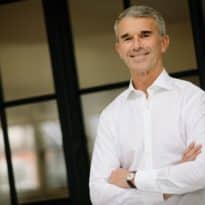Bradley Goodman says there were three elements that helped him succeed in the pre-graduate placement he won during the pandemic at Cathedral Financial Management
One of the key components to gaining an undergraduate degree is gaining practical experience to complement and solidify your academic studies. The opportunity to gain work experience I felt, would not only be key for boosting my employability after university, but also give me an insight into the profession I am aspiring to be a part of. That’s why, after completing my second year of my international business degree at the University of the West of England, I chose to undertake a pre-graduate placement year.
From its position in the profession and being located on Exeter’s sustainable Science Park development, Cathedral Financial Management (CFM) looked like the perfect firm for me to approach. Having secured a placement with them, from August 2020, the ongoing pandemic created some uncertainty about whether that might continue. So, after a nervous wait over the summer, I was delighted to be told, that bar some minor adjustments, CFM were still able to offer me a place despite the unforeseen implications Covid-19 has had on businesses.
Nothing would have best prepared me for a placement which took place in and out of national lockdowns, through later stages of the Brexit negotiations and the consequential economic uncertainty that followed. What a time to get started!
However, since then I have successfully settled in, helping the advisers with research and report writing. For those that might also want to take a pre-placement in financial services, there were three tried and tested elements that I felt, allowed me to best ‘roll up my sleeves’ and ‘hit the ground running.’
1. Attitude during uncertainty
The uncertainty, associated problems and negativity related to the impact of Covid-19, compounded by Brexit, could have been very distracting.
But from my time at university, I recalled the importance of creating a positive attitude by setting targets that are challenging yet attainable. This helps you concentrate on the job in hand while also seeing progression towards a future outcome.
2. Being consistent from the start
Also, being consistent with my routine, workload and organisation from the outset really allowed me to focus on driving progress.
Specifically, for example, being consistent with the workings and wording within client reports – which I set as a main personal goal. This target allowed me to note my initial mistakes, and where I could improve when assisting the adviser on the next task. Being pro-active in this way increased my efficiency for future tasks and also created an air of positivity during constructive feedback.
It reflected the challenging yet realistic approach while also showcasing my progress to date, which in turn helped during feedback.
The question I asked of myself, and you might ask of yourself is: Are my personal goals attainable, challenging and best portraying my progression and achievements?
3. Maintaining professionalism
Working in a business also meant adjusting to a formal and professional way of working. I’ve found this to be a valuable, and rewarding process, in that I am now more confident talking in a professional business manner.
I’ve found maintaining a professional attitude helps you to not get distracted by the wider picture – such as the pandemic – but rather to focus with confidence on the aspects you can positively impact.
It has also led to me being given more interesting work to undertake, assisting the advisers here at Cathedral Financial Management. For example, I was tasked with conducting some research into alternative funds which might be used for a client. I found two very consistent but nearly identically performing funds, but noted that one of the funds had a rather large allocation of cash, whilst competitively performing against the latter, which I highlighted as having the potential in the uncertain markets, to mitigate against any sudden downturns that might occur.
This has all added to my practical experience and to what I hope will be a positive future.
This article was first published in the April 2021 issue of Professional Paraplanner.




























